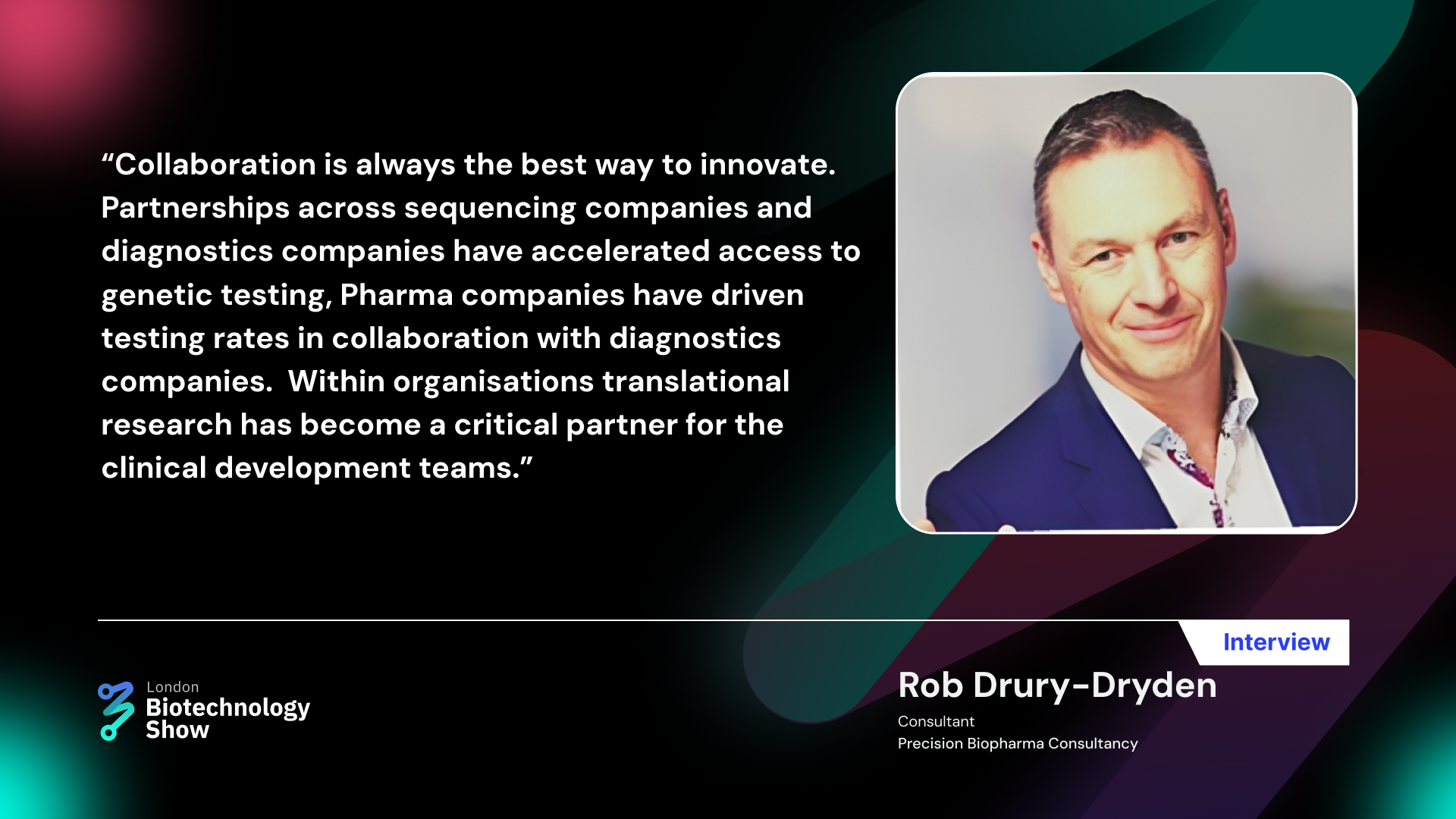In a recent interview with Muhammad Younis, Rob Drury-Dryden, Consultant at Precision Biopharma Consultancy, delved into some pivotal topics: Omics, a field encompassing genomics, proteomics, and other -omics, revolutionizing precision medicine by analyzing biological data on a comprehensive scale, the indispensable role of AI in interpreting this vast data landscape, and how collaborative efforts across diverse disciplines are driving innovation and breakthroughs in this evolving landscape.
#LBS: Precision Oncology relies heavily on the integration of multi-omics data (genomics, transcriptomics, proteomics, etc.) to understand cancer at a molecular level. How do you tackle the challenges of integrating diverse omics data for personalized treatments in Precision Oncology?
Rob Drury-Dryden: Diverse-omics are a growing and hugely valuable, largely quantitative, monitoring tools of biological systems. Currently these technologies are helpful to research however there is a gap between their research value and clinical utility. Until we are able to define clear clinical utility for defined -omics identified biomarkers then the impact on therapy will be limited
#LBS: Ensuring equitable access to Precision Oncology treatments is essential. How can we address healthcare disparities across different patient groups and settings?
Rob Drury-Dryden: Equity of access for precision medicine relies on essentially 2 key factors. The first being cost - clearly this is not unique to precision medicines so could be part of a wider discussion. The second factor is availability of testing / diagnostics. As we have seen over the past 15 years as precision medicines gain approvals uptake of relevant testing and diagnostic services rapidly expand to meet demand
#LBS: In Precision Oncology, bioinformatics is crucial for predicting genetic mutations' effects and responses to targeted therapies. Can you explain how this is done?
Rob Drury-Dryden: I am not a bioinformatics expert. What I do understand is that recognition of genomic aberrations that have oncogenic driver capabilities is built up from substantial databases over time. As we continue to increase the databases our ability to call these aberrations becomes increasingly accurate. The key question that remains for me is how we determine the thresholds for development decisions. We need to know the incidence of specific aberrations and how sensitive these aberrations make the tumour to the selected drug.
#LBS: How does artificial intelligence and machine learning contribute to Precision Oncology, especially in analyzing complex genomic data and predicting treatment outcomes?
Rob Drury-Dryden: AI is already proving a powerful tool in drug discovery. The acceleration in this space talks to the fit with screening large volumes of data. In the research and development area movement is less obvious but there are clear opportunities in bioinformatics and analyses. Where I believe AI will drive value is in helping shape RWE. Our current development models are restricted by looking at specific timepoints in the disease evolution. AI will help develop treatment algorithms best suited for patients based on biomarkers and genetic profiles.
#LBS: Interdisciplinary collaboration is key in Precision Oncology. Can you share examples of successful collaborations between researchers, clinicians, and pharmaceutical companies that have advanced the field, and what lessons can be drawn from them?
Rob Drury-Dryden: Collaboration is always the best way to innovate. Partnerships across sequencing companies and diagnostics companies have accelerated access to genetic testing, Pharma companies have driven testing rates in collaboration with diagnostics companies. Within organisations translational research has become a critical partner for the clinical development teams. Challenges do however exist in access to data. The bioinformatics behind genetic aberration calling is usually proprietary which means that research and development is hampered by a lack of comparability across diagnostic reads
#LBS: The London Biotechnology Show offers a platform to discuss and display biotech solutions including Precision Medicine and Bioinformatics; what is your take on such events?
Rob Drury-Dryden: Events such as the London Biotechnology Show offer a great platform to discuss the hot topics of the moment. The value of any such platform will of course depend on the quality of the debates and the experts providing opinion

